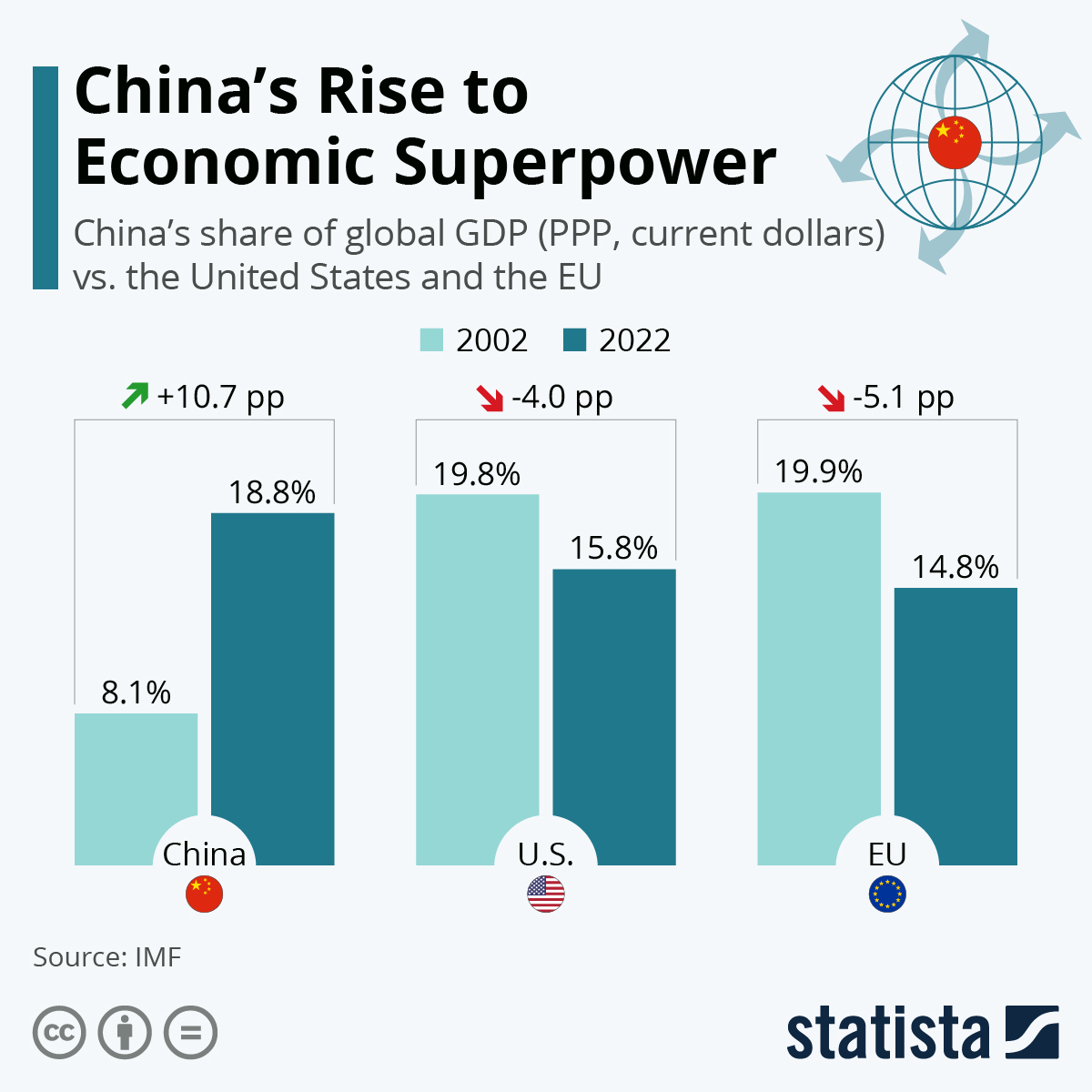America's Military Decline: China's Rise And The Shifting Global Power Balance

Table of Contents
Assessing America's Military Capabilities
While the US military remains the most powerful in the world by many measures, concerns about its relative capabilities are increasing. Several factors contribute to this perception of a potential decline.
Budgetary Constraints and Spending Priorities
The US defense budget, while substantial, has faced budgetary constraints in recent years. When viewed as a percentage of GDP, it's lower than during the Cold War and is increasingly dwarfed by the sheer scale of China's rapidly expanding military spending.
- Significant cuts in certain legacy programs have been made to prioritize other areas, such as cybersecurity and counterterrorism.
- China's military budget has experienced consistent double-digit growth for years, outpacing the US's increase in defense spending.
- The opportunity cost of diverting resources to domestic programs, such as healthcare and infrastructure, leads to reduced investment in military modernization and readiness.
Technological Advantages and Modernization
The US military has historically maintained a significant technological edge. However, this advantage is increasingly being challenged. While the US boasts superior aircraft carriers, stealth technology, and advanced fighter jets, China is rapidly closing the gap in certain key areas.
- China's advancements in hypersonic weapons technology present a significant threat to US military capabilities and strategic deterrence.
- While US research and development spending remains high, China's focused investment in specific military technologies is yielding rapid results.
- The pace of technological change, coupled with China's willingness to adopt and adapt foreign technologies, is blurring the lines of technological superiority.
Military Readiness and Personnel
Maintaining a high state of military readiness requires substantial resources and personnel. Concerns exist about the potential overextension of US forces, coupled with issues related to recruitment and troop morale.
- While the US military remains large, its deployment rates across numerous global hotspots raise concerns about potential strains on personnel and equipment.
- Recruitment challenges, stemming from a variety of socioeconomic factors, could impact the long-term readiness of the US armed forces.
- Sustaining the high levels of training and operational readiness required to counter modern threats demands continuous investment and efficient resource allocation.
China's Military Ascendancy
China's military modernization is a key factor driving the perceived decline of America's military dominance. This rapid expansion is reshaping the global security landscape.
Rapid Military Modernization
China's significant investments in its military have resulted in a dramatic increase in its capabilities across all domains of warfare.
- China has invested heavily in building a modern, blue-water navy, including a growing fleet of aircraft carriers and advanced destroyers.
- Its investment in advanced missile systems, including ballistic and cruise missiles, poses a direct threat to US assets and bases in the region.
- China's military training and exercises have become increasingly sophisticated, reflecting a growing professionalization of its armed forces.
Expansion of Naval and Air Power
China's naval and air power are expanding rapidly, challenging US dominance in the Indo-Pacific region and beyond.
- The size and capabilities of China's navy are growing at an unprecedented pace, directly impacting US naval power projection in the region.
- China's increasingly assertive actions in the South China Sea, including the construction of artificial islands and military installations, underscore its growing regional influence.
- The expansion of China's air force, equipped with advanced fighter jets and bombers, enhances its ability to project power throughout the region.
Cyber Warfare and Information Operations
China's growing expertise in cyber warfare and information operations poses a significant threat to US national security and interests.
- Numerous cyberattacks have been attributed to Chinese state-sponsored actors, targeting critical infrastructure and sensitive government data.
- China engages in sophisticated influence operations, employing propaganda and disinformation to advance its interests and undermine US influence.
- Defending against these multifaceted cyber and information threats requires a comprehensive and adaptable strategy that addresses both offensive and defensive capabilities.
The Shifting Global Power Balance
The changing military balance between the US and China has profound implications for the global security architecture.
Geopolitical Implications
The shift in military power is altering global alliances, intensifying geopolitical competition, and increasing the potential for regional conflicts.
- The balance of power in the Indo-Pacific region is shifting, impacting US alliances with countries like Japan, South Korea, and Australia.
- The potential for conflict in the Taiwan Strait and other regional flashpoints has increased significantly as China's military capabilities grow.
- The future stability of the global order is being redefined by this evolving power dynamic, necessitating adaptation and proactive diplomacy.
Economic and Trade Competition
The military power struggle between the US and China is intricately intertwined with economic and trade competition.
- The economic rivalry between the US and China is impacting global supply chains and technological development.
- Trade disputes and economic sanctions are used as tools of geopolitical leverage in this increasingly complex relationship.
- Control over critical technologies, such as semiconductors and artificial intelligence, is becoming a crucial aspect of this military-economic competition.
The Future of Global Security
The future of global security is uncertain, shaped by the evolving military balance and a range of other factors.
- Potential scenarios range from increased cooperation and strategic dialogue to heightened tensions and even military conflict.
- The role of international institutions in managing this shifting power dynamic will be crucial in preventing escalation.
- Adapting to this new reality requires a multifaceted approach that incorporates robust military capabilities, strategic partnerships, and effective diplomacy.
Conclusion: America's Military Decline and the Future of Global Power
This analysis highlights the significant challenges facing the United States as China's military capabilities continue to rise. While the US still maintains a considerable military advantage in many areas, the narrowing gap and China's focused modernization efforts suggest a significant shift in the global power balance. The future of global security depends on navigating this complex relationship, requiring proactive strategies that incorporate military modernization, strategic alliances, and diplomatic engagement. Stay informed about America's military capabilities and the ongoing shift in the global power balance by following reputable news sources and engaging in informed discussions on this critical subject.

Featured Posts
-
 Zverevs Indian Wells Campaign Ends Early Griekspoor Upsets Top Seed
May 31, 2025
Zverevs Indian Wells Campaign Ends Early Griekspoor Upsets Top Seed
May 31, 2025 -
 Carnaval D Ouistreham Le Coup D Envoi De La Saison Estivale
May 31, 2025
Carnaval D Ouistreham Le Coup D Envoi De La Saison Estivale
May 31, 2025 -
 Estevan Road Sweeping Dates And Locations Announced
May 31, 2025
Estevan Road Sweeping Dates And Locations Announced
May 31, 2025 -
 Solve The Nyt Mini Crossword Saturday May 3rd Clues And Answers
May 31, 2025
Solve The Nyt Mini Crossword Saturday May 3rd Clues And Answers
May 31, 2025 -
 Canadian Wildfire Smoke Impact 3 C Cooling In New York And Toxic Air Pollutants
May 31, 2025
Canadian Wildfire Smoke Impact 3 C Cooling In New York And Toxic Air Pollutants
May 31, 2025
